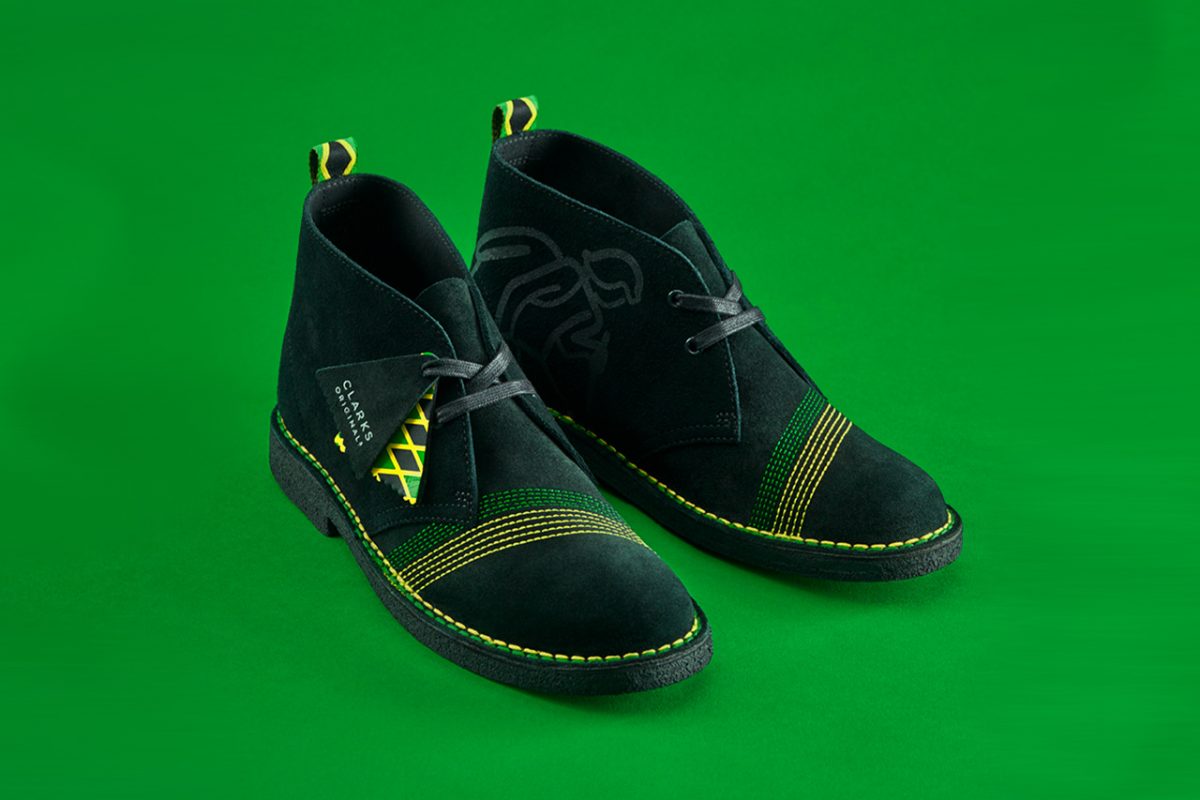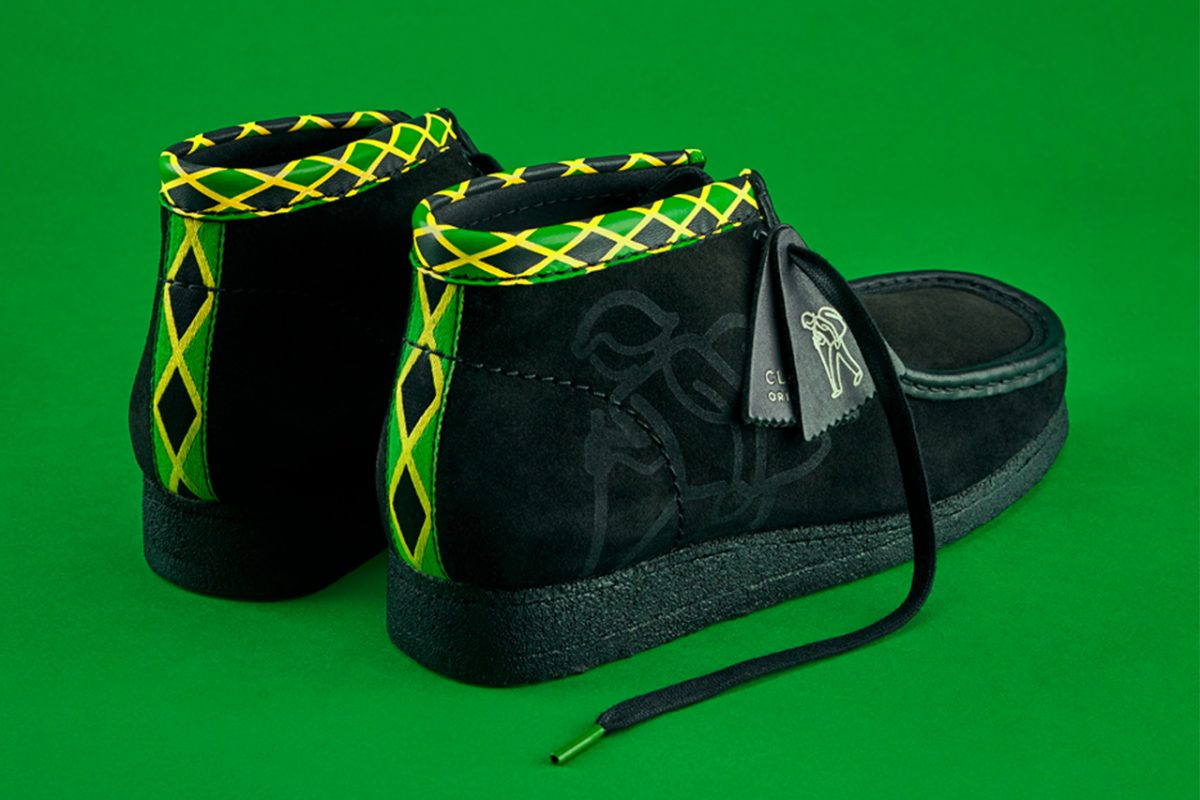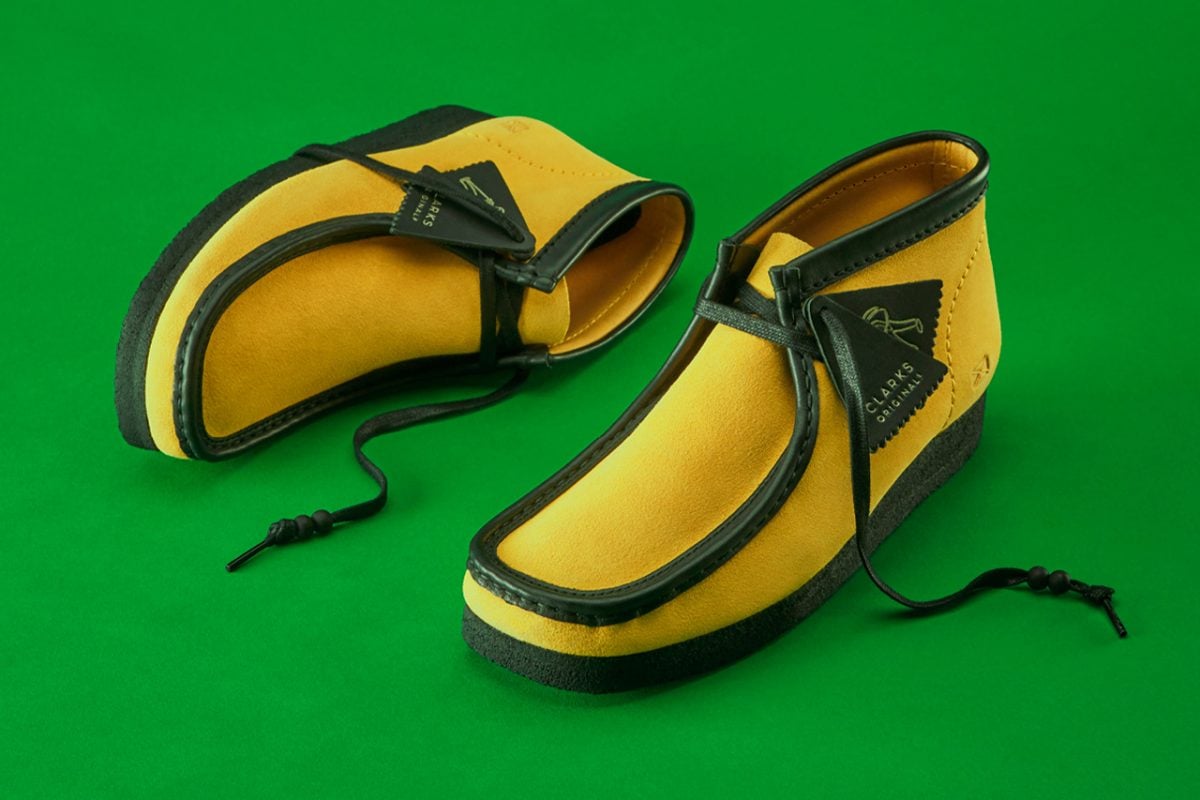Dancehall Expected To Reconnect Clarks With Jamaican “Cult” Consumers

A week after Clarks Originals unveiled its Clarks and Jamaica marketing documentary, The Gleaner newspaper has reported that all is not well with the British footwear company financially, resulting in it “launching its new Dancehall campaign aimed in part at reconnecting with Jamaican ‘cult’ consumers, as a way to regain lost sales”.
In The Gleaner report titled Clarks Targeting Jamaica’s Cult Buyers, business reporter Steven Jackson quoted Clarks former CEO Giorgio Presca as saying in the company’s annual report, that the Clarks has “lost connection with the main customers and accounts in our key wholesale markets”.
“Consumers lack emotional affinity with our brand. People today buy a brand because they feel that the brand represents them and has created an emotional connection with them,” Presca said.
“Clarks scores poorly on emotional brand affinity compared to its competition in key markets, impacting its brand perception and consumer consideration,” the then CEO added.
The report also comes a month after Clarks unveiled their Jamaica Pack series of shoes which featured their staple designs in the Jamaican national colours. That unveiling was followed weeks later by their new marketing campaign featuring Koffee, Protoje, No Maddz, Lila Ike, Sevana, England footballer Raheem Sterling and British artiste M1llionz.
The Financial Gleaner’s article also quoted Presca as saying that he believes “passionately” that Clarks can become more competitive and sustainable, but that it would require “swift and radical” action to deliver results.
It said Presca who joined the company in 2019 with the mandate to cut costs and grow the brand, had said that the lack of brand affinity had resulted in competitors selling shoes at higher profit margins than Clarks.
“The nearly 200-year-old company has been losing appeal for some time and the pandemic sped up the process. Presca, in addressing the issues, said that the first action to increase brand appeal was to tap into the cult consumers,” The Financial Gleaner report said.
“The problem, as he saw it, was that most consumers lack a connection with the brand, except for cult consumers,” Jackson noted in the report.
The Gleaner report noted that Clarks, “the unofficial shoes of the Dancehall music scene, continue to sell within Jamaica, despite changing trends that sees brands such as Nike, Adidas and Timberland becoming more dominant in street culture”.
Clarks anticipates a loss in 2020-21 due to the continuing uncertainty surrounding the pandemic.
Last year, sales by region were 17.7 million pairs for Europe, down from 20.2 million pair, which Clarks blamed on a decline in trendiness and low consumer confidence; 20.8 million pairs sold in the Americas, down from 21.2 million pairs; and 4.4 million pairs in Asia, down from 4.8 million pairs, it said.
The report noted that the situation remained dismal for the footwear company as, although it sold more than 42.9 million pairs of shoes in 2020, that figure was 3.3 million fewer pairs than 2019. It also said that Clarks also closed some 140 locations globally, up from 56 stores in 2019, but that it “wasn’t immediately clear the number of stores remaining”.
In mid-March, Clarks had said it would be engaging in endorsement deals with Reggae and Dancehall artists to promote its new Spring 2021 collection ‘Jamaica Pack’ line, which would be officially be launched this month.
The assurance had come after the company was taken to task by several Jamaicans sceptics, who said they hoped Clarks was not seeking to exploit Brand Jamaica brand for selfish gain, through the line which carries the Jamaica Trek, Desert Jamaica and the Jamaica Bees footwear.
Upon the unveiling of the Clarks documentary last week, Vybz Kartel, Popcaan and Super Cat fans castigated the footwear company, for their omission of the three Clarks-committed artistes, and opting for new wave Reggae artistes.
Clarks new move also came up for discussion On The Fix Podcast last week Wednesday, where the hosts also expressed the same sentiment, noting that while a collaboration between the company and Jamaica was well overdue, the absence of Dancehall artists who have paid homage to the shoes in their songs, over the years was strange.
They argued in the podcast titled Clarks Using JA Culture Because They’re Going Broke? that even though the new wave Reggae artists are “definitely are better to do business with” they have “never seen them support or celebrate brands the way Dancehall people have”.
“Popcaan would have n the best person to include,” one of the hosts contended.
The issue of Clarks financial troubles had also come up for discussion during The Fix Podcast with co-host Naro saying he learned that the company’s litany of woes predated the COVID pandemic, and surmised that Jamaica had been turned t for redemption, due to its nationals’ obvious brand loyalty.
However, The Gleaner quoted a female artiste as saying that the sponsorship of “clean influencers as opposed to the hardcore Dancehall artistes made good marketing sense” as Clarks would be getting “all the street respect without the criminality linked to other artistes that sing about the brand”.
“I don’t readily associate Clarks with some of those guys, but it is a re-imagining of the brand. They are influencers so it makes sense,” she said.
Clarks grew in popularity in the 1970s and 1980s when Jamaican Dancehall artistes, began glorifying the company’s ‘Bank Robber’, Wallabees and Desert Clarks in their songs.
The song which paid the greatest direct homage to Clarks back then, was Little John’s Clarks Booty, while Super Cat praised the footwear in Trash and Ready, with Eek-a-Mouse doing the same in Wa do dem?
Dancehall’s affinity to Clarks has been so huge, that it inspired One Love Books’ founder Al Fingers, to undertake a compilation of tracks dubbed Clarks in Jamaica which documented the longstanding relationship between Jamaicans and the British brand.
In addition, Prime Minister Andrew Holness’ made a green pair of the Desert Clarks his choice of footwear in order to appear trendy in his last two victorious election campaigns, due to its popularity amongst Jamaican youth influenced by Vybz Kartel.
In 2012, a BBC team journeyed to Jamaica to interview Popcaan about his love for the brand, and other issues surrounding its popularity.
Vogue fashion magazine also published an article in 2015 titled How Jamaica fell for the Desert Boot: The Story of Reggae’s Love Affair with Clarks, noting that when Clarks introduced the Wallabee in 1967 and the Desert Trek “which was instantly re-christened ‘Bankrobbers’ in Jamaica in 1971, they practically flew off the shelves, straight onto the album covers of Reggae’s most influential singers and DJs, Rastas a and razor-trimmed lyrical gangsters alike”.


